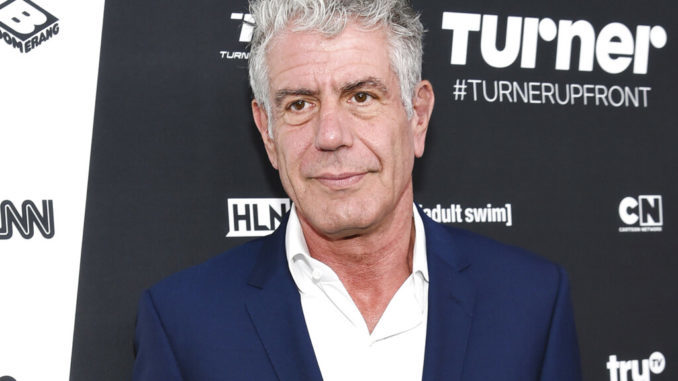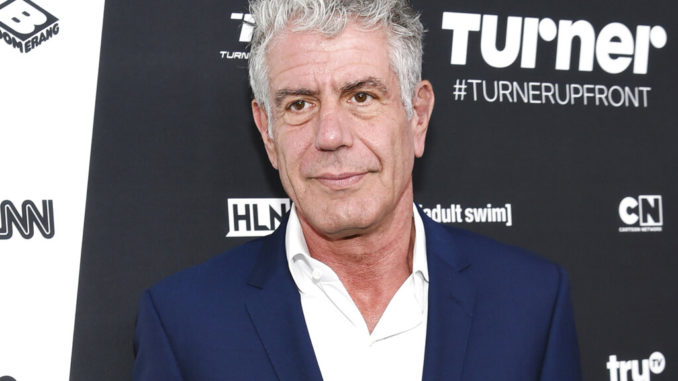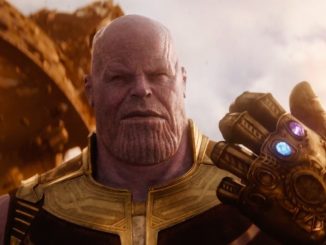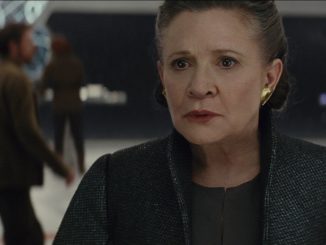

NEW YORK — Biographers try as best they can to walk in the shoes of their subjects. Charles Leerhsen took it a step further: He slept in the same French hotel room where Anthony Bourdain killed himself, earning a unique perspective — and pushback.
“There’s been some people who’ve criticized me, saying it’s ghoulish or that I’m the kind of reporter who goes through people’s garbage cans,” Leerhsen, the author of “Down and Out in Paradise: The Life of Anthony Bourdain” told The Associated Press. “But all the best biographers — I wouldn’t put myself in their ranks — but all the guys who win the prizes, they believe that you really need to go where the person was.”
Seeing what the chef, writer and TV host saw on his last day alive in 2018 is only part of Leerhsen’s exhaustive research for the book out this week, which included 80 interviews and material from Bourdain’s laptop, diaries and his final texts.
The impressionistic portrait that emerges is of a complex man who combined swagger and spiky cool with deep insecurity, neediness and image-consciousness. Leerhsen calls him “a crash test dummy extraordinaire.”
The book traces Bourdain’s life from his childhood in Leonia, New Jersey, to dropping out of college, washing dishes in Cape Cod and spending years as a chef in Manhattan, where he built a punk rock persona and becoming addicted to heroin.
“Getting hooked on heroin was the fulfillment of an almost lifelong dream,” the author writes.
Bourdain’s big break came after a magazine piece was expanded into “Kitchen Confidential,” his wickedly funny memoir about the underbelly of the restaurant world. That led to a life as a globetrotting TV raconteur, cut short at 61.
“I was curious about how could the guy who had the best job in the world, who seemed so cool and was so smart, in some ways and so sophisticated — how could he do this?” said Leerhsen. “My reason for writing the book was that simple.”
What he found was a man who was prone to overdoing things and addicted to being busy, even at the detriment of his happiness.
“I think he had a hard time just staying in that state of success and bliss,” Leerhsen said.
He quotes a former girlfriend with a telling observation about a TV figure who seemed to be the essence of manliness: Bourdain was actually an adolescent all his life. He actively tried to be a rebel but had a Google alert set to his own name.
The unvarnished biography returns again and again to the performative aspect to Bourdain’s personality: “Authenticity, in the sense of being the real thing and not a pretender, was his lifelong preoccupation.”
Leerhsen’s reporting finds an “increasing obnoxiousness” in Bourdain’s last two years: “Tony pushed people away or let long-running relationships lapse until by June 2018 there was no one left in his life to play the role of Person Who Plans Your Funeral.”
The book’s most mournful part is the anguished texts from Bourdain in the days leading to his death. He was in an unhealthy long-distance relationship with actor Asia Argento, and was taking steroids, human-growth hormone and Viagra, Leerhsen reports.
“You were reckless with my heart,” Bourdain wrote to Argento on the night before he died. The book reveals that Bourdain googled her name “several hundred times” in his last three days after a tabloid published pictures of her with another man.
“He’d turned into “a character out of a sordid, slightly deranged James Ellroy novel, a doomed and desperate lover,” Leerhsen writes. The last website Bourdain visited was a prostitution service.
The book is unauthorized; Leerhsen wasn’t able to speak to many in Bourdain’s inner circle on the record and relies on many confidential sources. Argento, tellingly, did not participate. But it is a very detailed profile, revealing everything from what posters were on his dorm walls to his preferred brand of gin.
Bourdain’s estranged brother, Christopher, has called the book hurtful and defamatory fiction, but Leerhsen called him unreliable and said no one else has come forward to challenge his work.
Simon & Schuster, in a statement, defended the book, saying it “is a candid and comprehensive biography” that is “based on extensive interviews with people who knew him intimately. We stand by our forthcoming publication.”
Leerhsen is a former executive editor at Sports Illustrated whose previous books include biographies of Ty Cobb and Butch Cassidy. He said his account of Bourdain, flaws and all, serves as a corrective to many profiles that are fawning.
“I don’t get the people who say, ‘Don’t tell me. I want to remember him a certain way,’” he said. “I was curious. If you’re not curious like I was, then God bless you, you know?”



